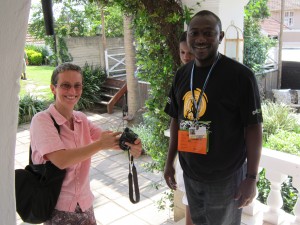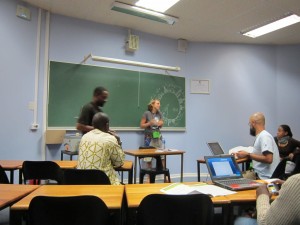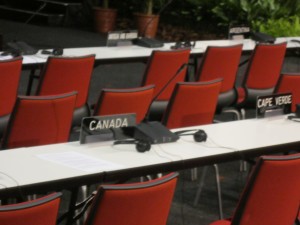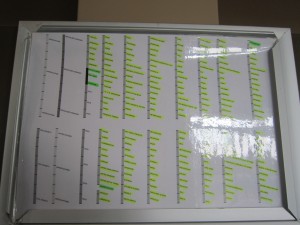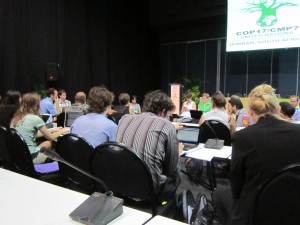COP 17: from Peoples’ Space to Conference Hall
As a first timer to a COP, I’m blown away by the cynical emphasis on offsets and the carbon markets and the resistance to REAL emission cuts. Will the hope of Kyoto Protocol die here?
At the Reducing Emissions from Deforestation and Forest Degradation Plus (REDD+) workshop in the People’s Space at the University of KwaZulu-Natal, Ivonne Yanez (of Oilwatch South American, a KAIROS-funded partner) said that the legal framework under which REDD+ is practiced in Ecuador does not explicitly forbid the government from accessing minerals and petroleum resources on Indigenous lands. To the chagrin of one initially disbelieving workshop participant, Ivonne explain that is was ipso facto legal. Arrgggh indeed.
On Sunday, December 3 the COP17 Faith Secretariat will host an inter-faith prayer service at the Steve Biko campus of the Durban University of Technology. We would welcome your prayers, echoing the faith leaders in Durban, that negotiators, especially those representing Canada, would set aside climate-destroying policies and economies that impact the most vulnerable in the global South, and cause the deaths of over 300,000 annually. Check out the KAIROS website for a climate justice prayer.
Beyond Nnimmo Bassey’s To Cook a Continent: Destructive Extraction and the Climate Crisis in Africa (Pambazuka Press, 2011) mentioned in an earlier blog, another hot seller here is Patrick Bond’s Politics of Climate Justice: Paralysis Above, Movement Below (University of KwaZulu-Natal Press, 2011).
I saw an op-ed page columnist in one of Canada’s national paper say the other day that it was a shame that the climate science debate was being thwarted because some take issue with the climate modeling and projections. The columnist makes a disingenuous moral equivalency between the overwhelming preponderance of near-consensus climate science with some dissent by academics which turn out to funded by the petroleum industry. Reactionary rhetoric – like calling “common but differentiated responsibility” under the Kyoto Protocol “guilt payments” – aside, the urgency of grappling with keeping temperatures below 2 degrees C should not be sidetracked by dithering over the empirical human and natural degradation already at play in Africa, low lying coastal areas, and small island states.
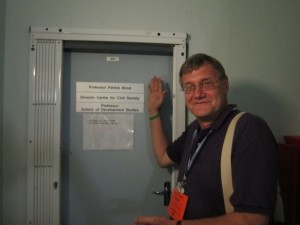
Offiice of Patrick Bond, Senior Professor of Development Studies of the Centre for Civil Society at the Uiversity of KwaZulu-Natal, a nerve centre for climate justice
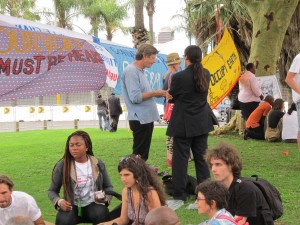
Emerging speakers' corner or "Occupy COP17" space across from the convention centre, with Patrick Bond standing in blue shirt on the left
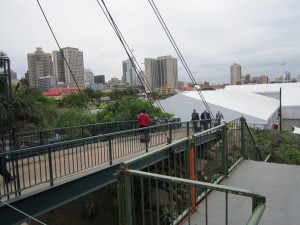
After metal detectors and badge identification, all accredited delegates to COP17 pass over a bridge to the exhibition sites
